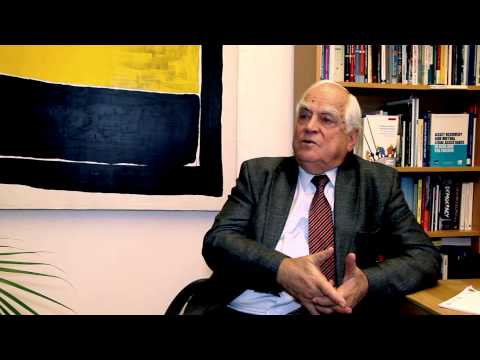Current developments and future pathways towards improved accountability in natural resource governance - Interview with Peter Eigen - Part V
The governance challenges of natural resource extraction are enormous. What can be done to improve natural resource governance?ECC’s Stephan Wolters talked to Peter Eigen, Founder of Transparency International and Chair of the Extractive Industries Transparency Initiative (EITI) from 2006-11. As a leading expert on the challenges of corruption, he provides exciting insights and evaluates success and failure of various approaches, including EITI.
"EITI, narrow as it was, technocratic as it was in the beginning, helped tremendously. It is wonderful that it has gained so much stature that the current Chair Clare Short can now be more ambitious and go further into the context within which mining takes place. She is postulating for a complying country to publish investment agreements. In some countries, like Kenya for instance, investment agreements are still confidential, so you cannot really hold your government accountable. The initiative can now go into financial flows inside the country. It can look at barter arrangements involved in many mining ventures or at the fairness of certain arrangements. It is possible to compare what the Norwegians get for one barrel of oil and what an African country gets for it, and see why there is a difference. There is a tremendous normative dynamism now in the EITI, which I always predicted. Now they can begin to harvest what we sowed at the beginning.
When I left EITI two years ago, I was attacked by the companies for welcoming the Dodd-Frank Act. The Act makes some of the reporting requirements tougher and mandatory. Therefore, some of our member companies complained that they are suddenly subject to a much stricter regime than what they had agreed to with us. Some companies felt that the act undermined the strength of EITI, that it lost its raison d'être. But this is simply not correct. I believe that the Dodd-Frank Act supports what we are doing, so we welcome it and hope that it will be properly implemented.
What is even better, the Europeans are contemplating guidelines very similar to the Dodd-Frank Act. I am delighted that some of the OECD countries are implementing EITI. Canada and Australia are considering it, and Germany is considering it on a pilot basis. These are all developments that go way beyond what I had hoped for. In other areas we are not doing that well. We should do better in Latin America and have Brazil, Mexico and Chile on board. We should have South Africa on board, which is the mining nation of the world. But overall I think EITI is a splendid example of effective cooperation between governments, the private sector and civil society. "
Please find the Video Series Overview here.
Further resource:
In this short video, Oliver Brown explains how resource management can contribute to more effective environmental peacebuilding in Afghanistan - drawing on his experience as a consultant for UNEP.










